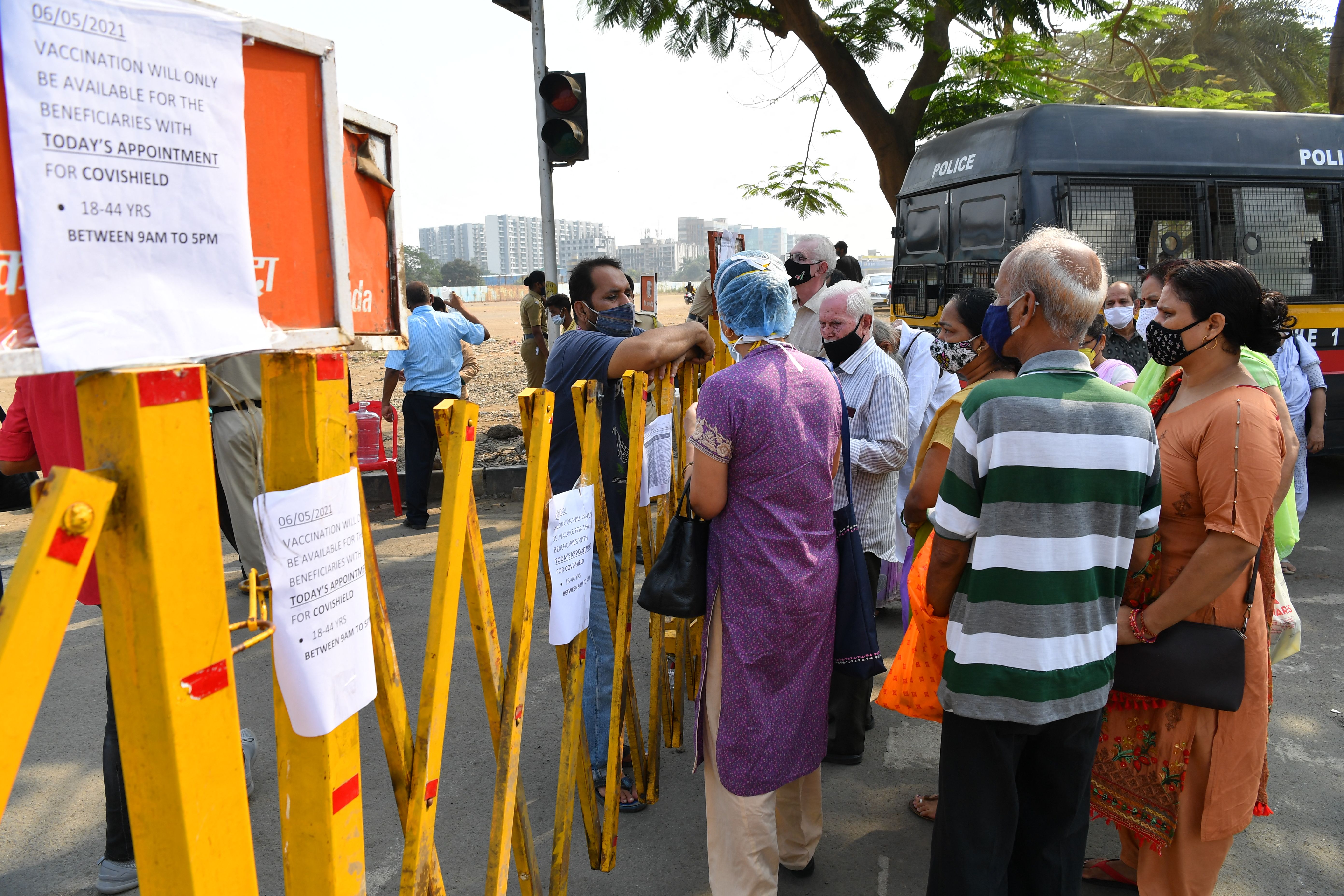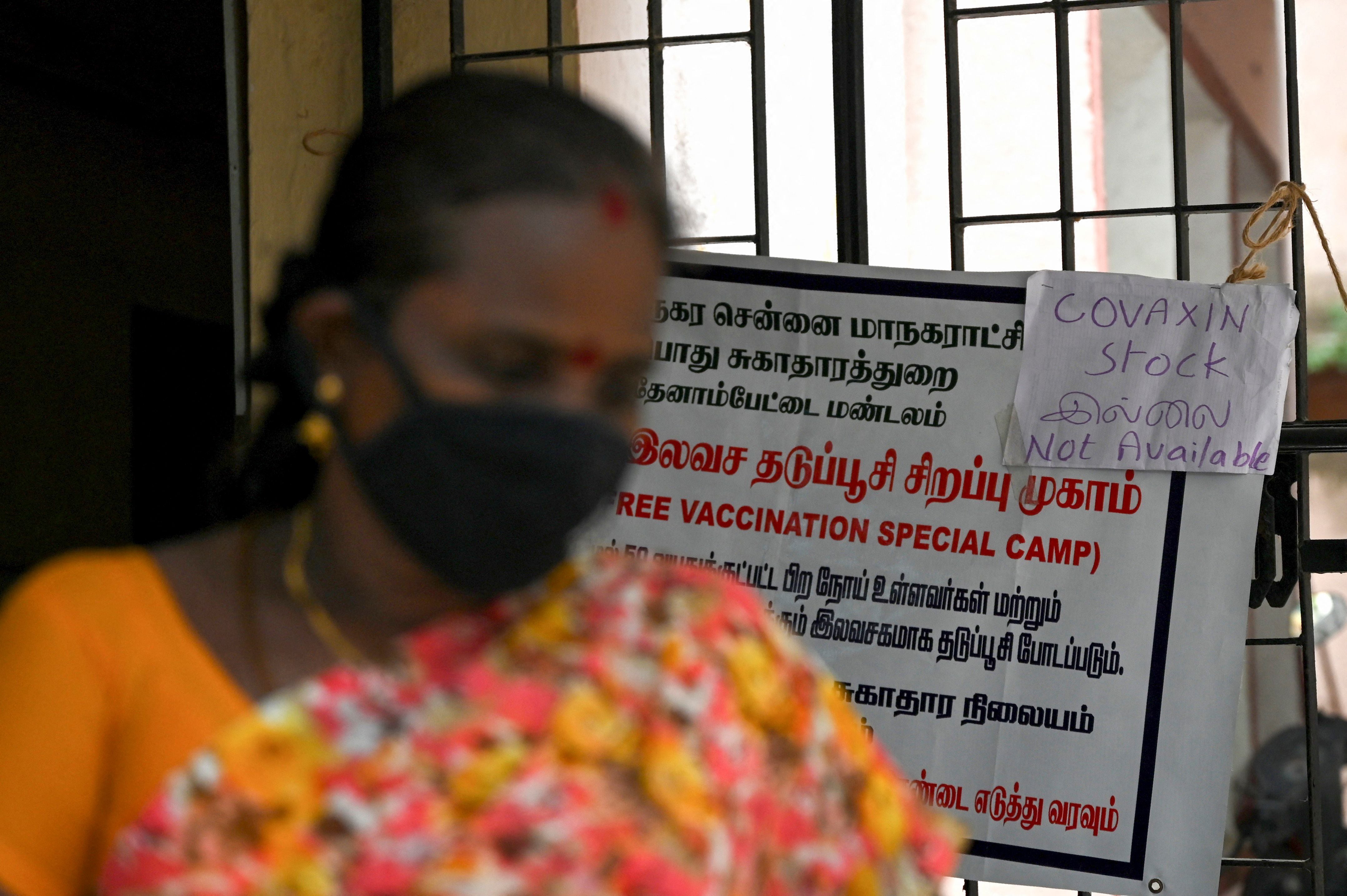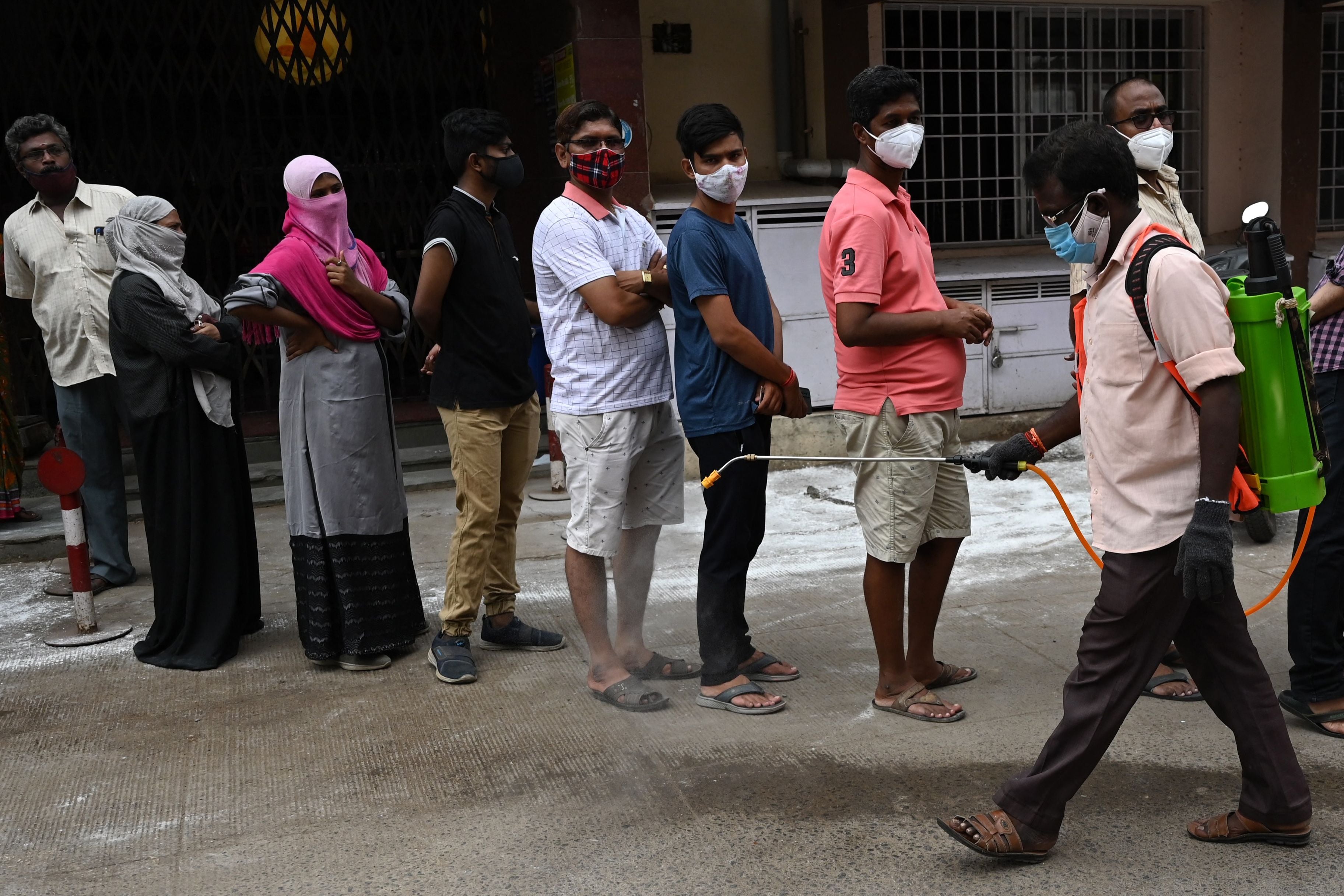How WhatsApp rumours about impotency, clots and death are fuelling Covid vaccine hesitancy in India
At the same time as India’s vaccination programme is suffering from shortages of supply, the rollout is also being hampered by swirling rumours of deadly side-effects, as Maroosha Muzaffar reports

Hema Rawat, who lives in a rural dell in the hilly northern Indian state of Uttarakhand, says no one in her village is keen on getting vaccinated, even though the deadly second wave of the coronavirus has killed thousands in the region.
False rumours about post-vaccination deaths and complications are swirling on social media apps, unverified, and passed on through word-of-mouth as absolute truths.
“Koi na lagwa raha [No one is taking the vaccine shot],” Rawat tells The Independent over the phone. Rawat says some villagers even believe that vaccines lead to food poisoning.
In the heart of the national capital, a Delhi-based consultant is in the grip of grief and guilt after losing an uncle to Covid-19. Siddharth, who did not want his second name identified, says regret is coursing through the entire family at not getting his uncle vaccinated.
“I know multiple people in my social circle who don’t want to take the vaccine,” he says. His uncle was in his 60s and thereby eligible for vaccination during the second phase of the rollout.
India’s health ministry data, up until 17 May, revealed that only 141.6 million people had received at least one vaccine dose — or roughly 10 per cent of the population of 1.35 billion. And just 40.4 million people across the country were fully vaccinated — just 2.9 per cent of its population.
Vaccine Hesitancy
Many Indians are hesitant to get the vaccine, citing sporadic news about clotting in those who took the shot. Disinformation on WhatsApp groups has played a big part in adding to the suspicion.
On 17 May, the health ministry revealed that an Adverse Events Following Immunisation (AEFI) committee found a “minuscule” 26 potential cases of bleeding and clotting after administration of the Oxford-AstraZeneca vaccine (branded in India as “Covishield”), and none after Bharat Biotech’s “Covaxin” — the two currently available vaccines. The panel said that it had studied 498 of 700, “serious and severe events and found that only 26 had been reported as potential thromboembolic — formation of a clot in blood vessels — events.”
The reporting rates of these events in the country is around 0.61 out of one million doses, it said, “which is much lower than the 4 cases per million reported by the UK’s Medical and Health Regulatory Authority (MHRA).”
This data, when it came out, had the opposite effect on people. Instead of being reassured by the limited chance of occurrence of adverse side effects, it scared people off the jab even further. Misinformation about what the figures meant found its way into WhatsApp and Facebook groups even after reassurance from experts that the benefits of taking the vaccine far outweighed the risks.
“Both my father and mother are part of WhatsApp groups that kept sending information that was not necessarily correct,” Himani, a Delhi-based content creator and writer, tells The Independent. Her parents were eligible for the vaccine but despite her insistence, they did not take it. They tested positive for Covid-19 in April.
She says she was infuriated by the people on WhatsApp groups who kept pushing traditional home remedies to treat Covid instead of advising vaccination.

Dr Naveen Thacker, who is working to deal with Covid-19 misinformation across the country, says he has witnessed vaccine hesitancy both among rural and urban Indians. “Many say they don’t fear Covid and that their immunity is strong,” Dr Thacker says.
Vaccine hesitancy can have disastrous results in a country as highly populated as India. With a population density of 382 per sq km, vaccines are one of the ways to protect people living in cramped spaces, and reduce transmissibility.
Experts like him feel that if vaccine hesitancy is not taken seriously it will ultimately lead to more cases and longer periods of lockdown that will, in turn, push people further into poverty.
India’s Vaccination Plan
When India launched its vaccination programme it was from a position of strength, with the country already regarded in pre-pandemic times as the pharmacy of the world. Since then, however, several states have complained of major shortages, accusing the federal Bharatiya Janata Party (BJP)-led government of not placing enough orders for the shots last year.
India vaccinated at least 24 million people in the first week of April. On 20 May, however, there was an alarming decline in the number inoculated for the seventh straight day. At 1.3 million, the rolling average number of vaccinations reached its lowest level since 14 March.
Dr Thacker believes the government needs to invest in an “evidence-based, behavioural science-driven communication strategy” to convince people of the benefits of the Covid-19 jab.
Rural India
Even as bodies of Covid victims washed up on the banks of the River Ganges, bizarre rumours about vaccines in villages across India were taking hold. One rumour claimed vaccines made people impotent, encouraged by comments made by some politicians.
For instance, Ashutosh Sinha of the influential regional Samajwadi Party said earlier this year: “I think the vaccine may contain something which can cause harm. You can become impotent, anything can happen.”
While major cities are running out of vaccines, the situation is quite the reverse in rural areas where public health activists are struggling to convince people to take the available jabs. On 18 May, only about 15 per cent had been immunised outside urban areas, despite these districts reporting over 60 per cent of the cases.
In Tamil Nadu, a popular actor’s death due to a heart attack on 17 April – a day after he took the vaccine – led to widespread if unfounded speculation of a causal link. A group of people in Uttar Pradesh’s Barabanki jumped into a river to escape the roll-out of the “poisonous” vaccine.

Chhattisgarh health minister TS Singh Deo in February this year asked the federal government to halt the supply of Covaxin to his state until its efficacy was proven, leading to suspicion about the vaccine among his followers. On 11 May, six weeks after recovering from Covid-19, he revealed that he had himself taken Covaxin on his doctor’s advice.
In India’s northeast, it was reported that some Christian groups who call themselves “prayer warriors” were discouraging people from taking the vaccines and instead advocating the use of herbal and faith-based remedies to cure Covid-19.
The situation has been aggravated by an ongoing tussle between yoga teacher Ramdev — who has a huge influence among the masses — and a body of doctors who have sued him for spreading misinformation. In a viral video clip, Ramdev is seen questioning doctors and claiming that “lakhs (hundreds of thousands) have died from taking allopathic medicines for Covid”.
It’s a message, doctors fear, that has the potential to influence Ramdev’s millions of followers across India’s towns and cities.
Framing the message
One of the problems associated with hesitancy is that of messaging, experts say. While the emotional appeal of anti-vaxxer propaganda is meant to resonate with people, government information is often a dry set of facts and data.
Dr Jayaprakash Muliyil, one of India’s best-known epidemiologists, tells The Independent that the challenges to public health are to be expected given India’s size and diversity. He believes when more studies come out, “acceptance will increase”.
Meanwhile, more than 300,000 people have already died from Covid-19 in India – an official toll that is widely considered to be a big understatement of the true scale of casualties.
“My uncle passed away just a couple of hours ago. They [the family] scheduled the vaccine and cancelled at the last minute due to misinformation,” a Twitter user named Bharath posted on 11 May. It coincided with actor Vivek’s death and the surrounding propaganda, he added.
The issue of tackling vaccine hesitancy in India may have unique characteristics, but it is far from the only country facing this. Earlier in May, Gallup conducted a global survey that found that “in 79 out of 117 countries surveyed, the number of people who said they were willing to be vaccinated was below 70 per cent, the minimum percentage of the population that scientists say needs to have immunity to stop the virus from circulating”.
Join our commenting forum
Join thought-provoking conversations, follow other Independent readers and see their replies
1Comments